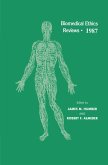As a field of study only thirty-five years old, bioethics has often lacked recognizable definition about what it is, what it does, what its value may be, and how one prepares to engage the discipline. In The Nature and Prospect of Bioethics: Interdisciplinary Perspectives, prominent bioethicists, whose work is rooted in philosophy, religion, medicine, nursing, literature, history, and policy analysis, join together to discuss their methods and professional insights, as well as to better define the field and its future development. Writing from the perspective of their own specialties, the authors review how their personal disciplines have contributed to bioethics, debate the current and future bioethical issues they face, and identify the most significant strengths and weaknesses in the current practice of bioethics. Seeking a sound foundation for the discipline, they also consider what basic knowledge and skills are necessary to be competent in bioethics, what methods and theoretical approaches are most promising for its future development, and what issues or perspectives have been neglected. A focal point for each author is to discuss the impact of bioethics on the health care delivery system in general, as well as on the author's particular field of study.
Diverse and forward-looking, The Nature and Prospect of Bioethics: Interdisciplinary Perspectives offers students and active bioethicists alike a readily accessible, interdisciplinary survey of the field, clearly establishing what bioethics is, why it is important, what precisely bioethicists do, how they prepare for work in the area, and what the field's developing prospects may be. The book constitutes an indispensable guide for all interested in bioethical issues today.
Diverse and forward-looking, The Nature and Prospect of Bioethics: Interdisciplinary Perspectives offers students and active bioethicists alike a readily accessible, interdisciplinary survey of the field, clearly establishing what bioethics is, why it is important, what precisely bioethicists do, how they prepare for work in the area, and what the field's developing prospects may be. The book constitutes an indispensable guide for all interested in bioethical issues today.








